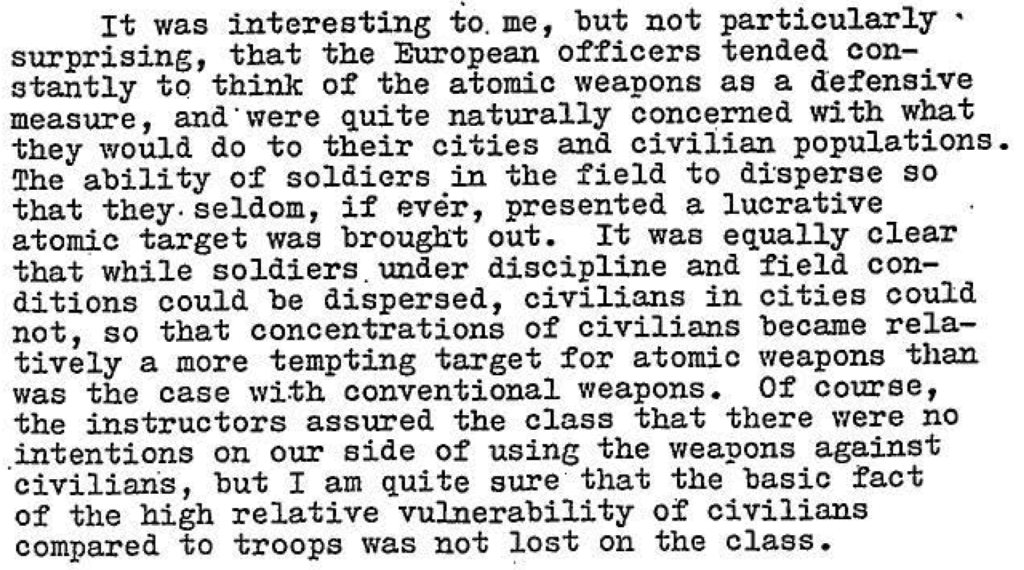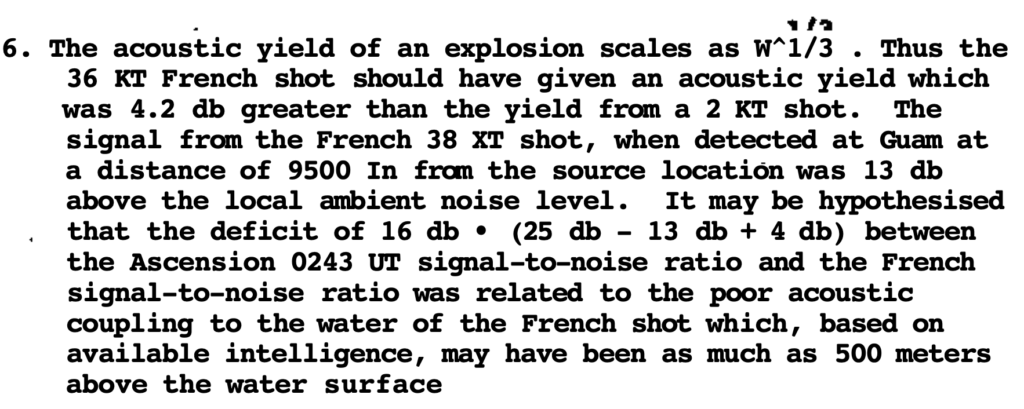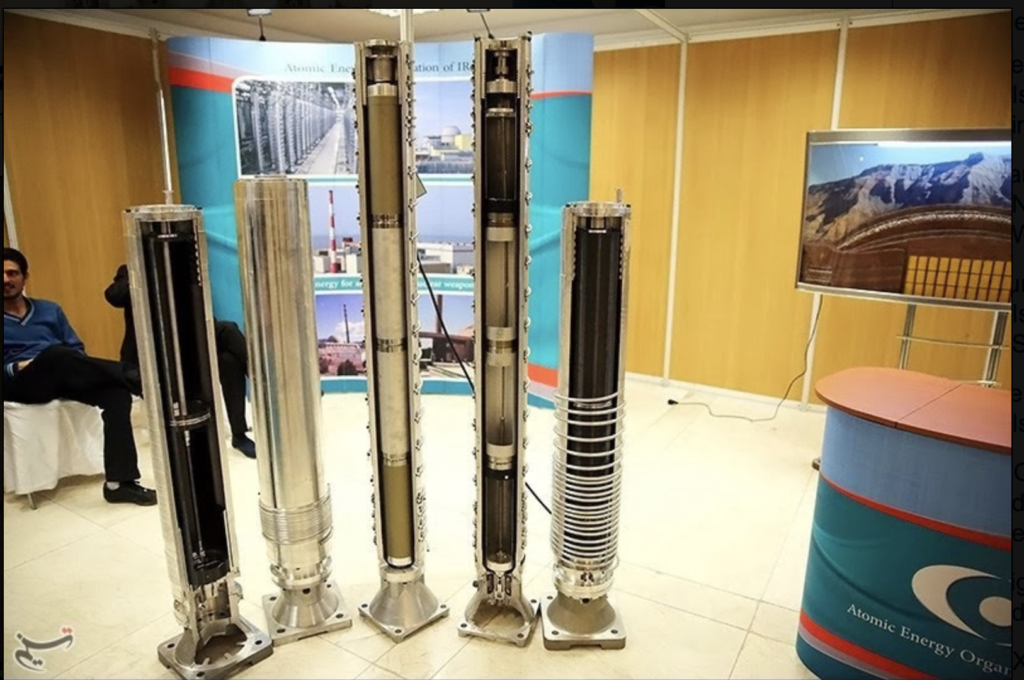Just FYI
Monthly Archives: August 2020
European Military Officers on Nuclear Weapons and Civilian Targets, 1954
The 1954 letter (about which I recently wrote) from an attendee of the Tenth Session of the NATO Senior Officers Course on Special Weapons (Atomic) has a paragraph describing the European officers’ opinions concerning the attractiveness of civilian targets for nuclear weapons.

Postponed 1540 Committee Review Report
According to this press release, some of the UNSCR 1540 committee’s activities concerning its ongoing Comprehensive Review will be delayed:
As noted on 29 April, this year is an important one: The Committee is conducting a Comprehensive Review, prior to renewal of its mandate on 25 April 2021. The plans included, amongst other events, open consultations with Member States and international, regional and subregional organizations, as well as civil society as appropriate. A report on the Review was scheduled to be submitted to the Security Council by 31 December 2020.
However, due to delays caused by the coronavirus pandemic and in order that States may plan accordingly, the Committee has decided that all activities related to the Comprehensive Review, including the open consultations, will be postponed until 2021 with the exception of the process currently under way of revising the Committee matrices, and any other activities that can be undertaken in a virtual format. The Committee will provide further details as soon as it has finalized its plans.
Here’s the 1540 committee April 29 briefing mentioned above. UNSCR 1977 extended the committee’s mandate until April 25, 2021.
2014 Iranian Centrifuge Models
1954 Nuclear Weapon Launch Authorization
This 1954 letter from an attendee of the Tenth Session of the NATO Senior
Officers Course on Special Weapons (Atomic) contains an unsurprising observation:
Under present field conditions, and as proved by recent maneuvers in Germany, it takes between five hours and forty-five minutes and seven hours and a half to get the final O.K. to expend an A-bomb, after a field commander decides to use one.
R Garwin and the JFK Assassination
This document contains an interesting anecdote of which I was unaware. Dr. Richard Garwin was a member of the Committee on Ballistic Acoustic of the National Academy of Sciences whose 1982 report concluded, as he put it, that “recordings from the Dallas Police Department of police microphone signals at the time of the assassination of President John F. Kennedy…were, in fact, not made from a microphone in Dealey Plaza and did not capture the assassination gun shots.”
A Bit on Pakistan’s Nuclear Imports
Parvez Butt (Secretary, Ministry of Science and Technology and PAEC chairman 2001-2006) shared some details about Pakistan’s efforts to acquire technology for its nuclear weapons program:
”When I was made part of the nuclear weapons design and manufacture program, of course the decision was Mr. Munir Ahmad Khan’s, we were supposed to purchase equipment and machinery from abroad. Once a deal was within reach, Mr. Munir Ahmad Khan would always say, ‘ Lets buy twice this number!”.
“In the early days of our weapons program, during a discussion with Mr. Munir Ahmad Khan, I raised some doubts whether we could achieve our objectives, with the limited technological infrastructure that was available at that time, to which he replied, if the Americans could do it in the 1940s without specialized machines and equipment, we can do it as well. But he already had this in his mind and launched a massive program for the procurement and indigenous development of high-technology infrastructure, machines, facilities and equipment needed to develop and implement a self-sustaining nuclear program. One such project was HMC-3 which has been playing an important role in industry and in indigenization of various projects of the nuclear program”.
War and Peace in the Nuclear Age
War and Peace in the Nuclear Age by WGBH which features 1980s-era interviews with a number of famous people. For example, here’s an interview with Roswell Gilpatric of the Gilpatric Commission.
2017 WWIC Conference on IAEA

In 2017, the Wilson Center ( I can’t find a link for it) held a conference titled The International Atomic Energy Agency at 60. There are 6 segments with lots of names you’ll recognize.
Some NRL Data on French Nuclear Testing, 1980
This1980 letter from US NRL Director Alan Berman has a data point about French nuclear tests in the Pacific of which I was unaware. Specifically, one of the tests’ yield was 38KT and was detonated “as much as 500 meters above the water surface.”


